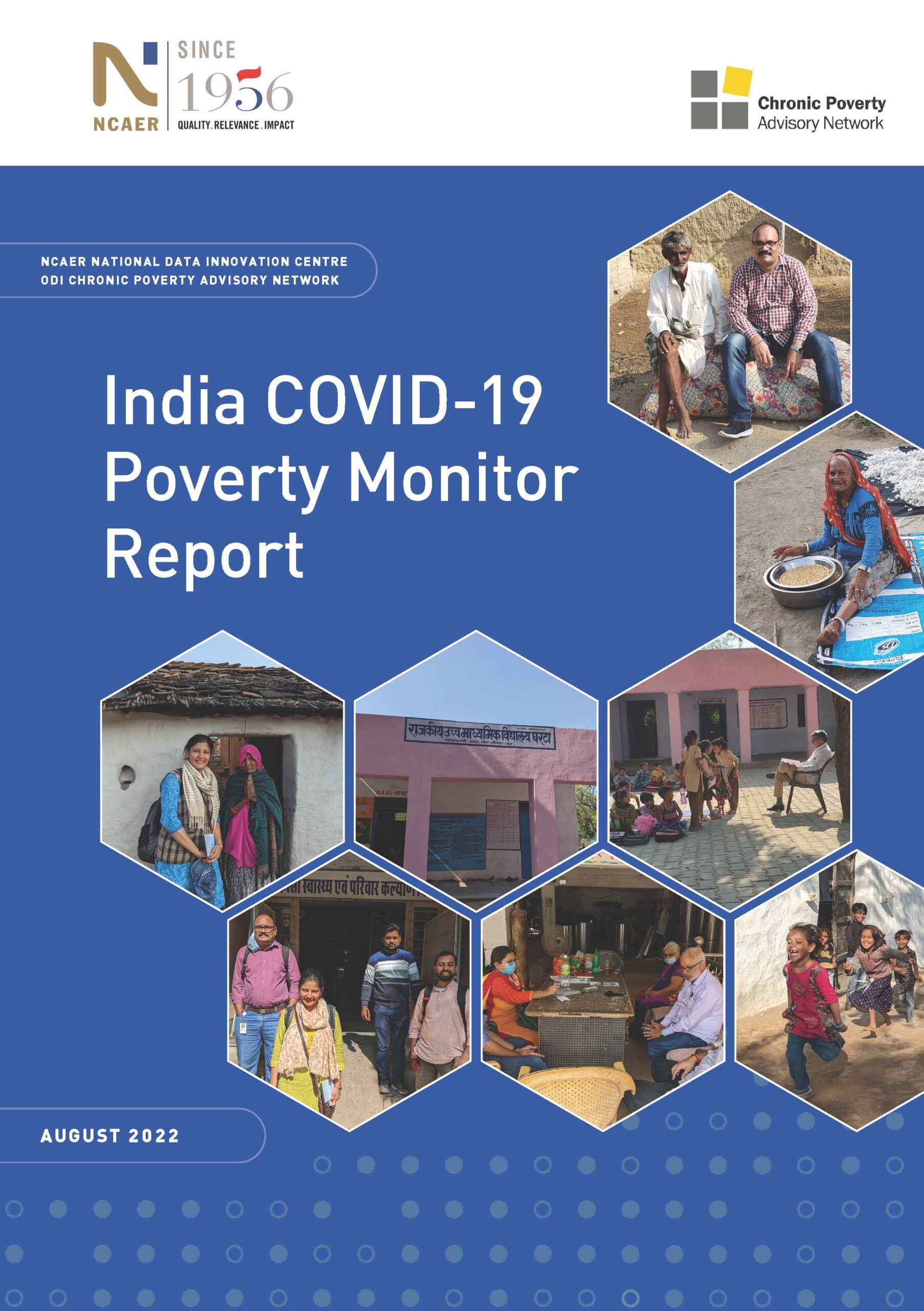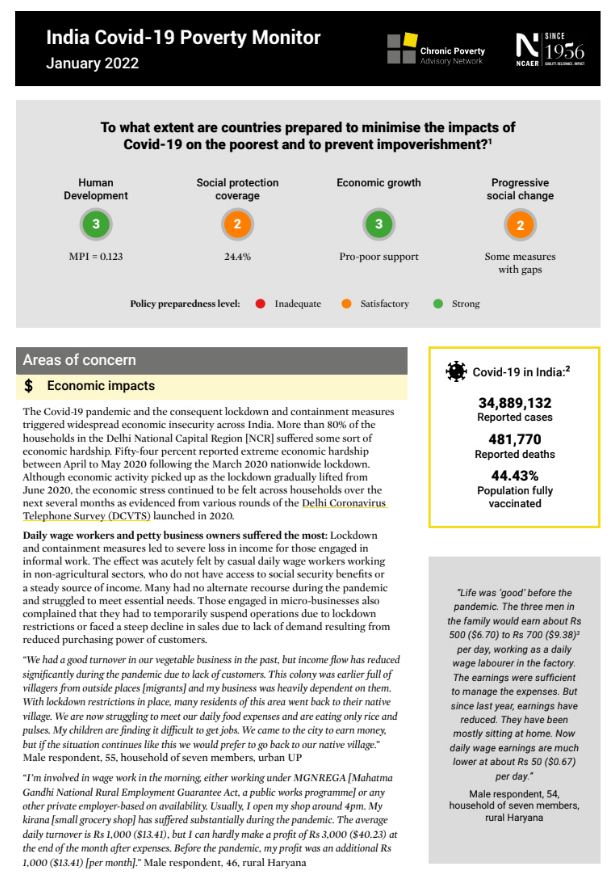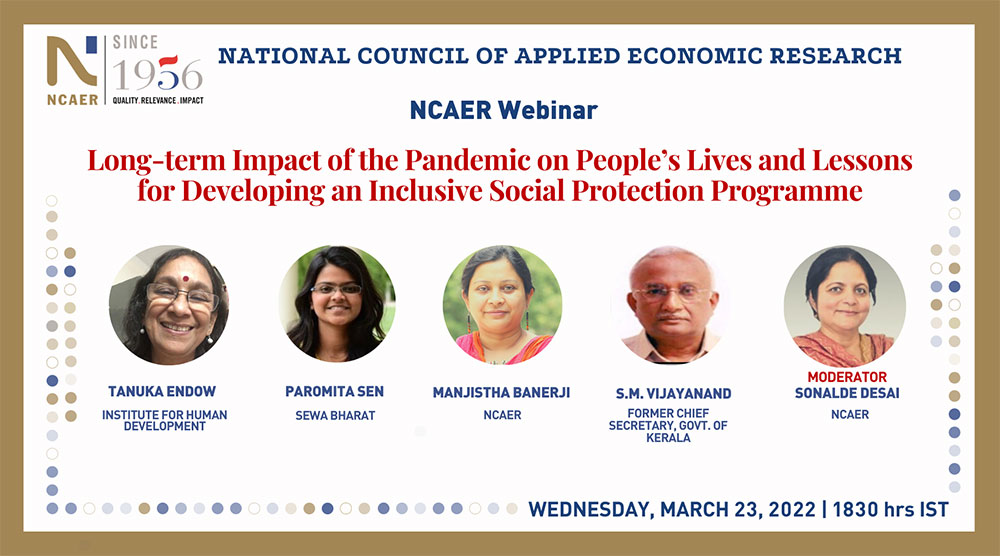
The COVID-19 pandemic has not only affected physical and mental health of people in India and around the world, it has impacted people’s livelihood, led to stagnation of economic growth and posed an unprecedented challenge to teaching and learning of students. Moreover, because of COVID-related pressure on the health system, the disruption of routine health services turned out to be a major area of concern in the wake of the COVID-19. With the availability of safe and efficacious vaccines and a reasonable level of vaccination coverage there is a ray of hope that the pandemic may be over soon. But the impact it has on the people of the country due to unexpected death of family members, loss of livelihood, decline in household income, school closures and inability to access temporary alternative methods of remote learning, lack of access to routine healthcare services can be long lasting. Based on the impact of COVID-19 on people’s lives, we assess the consequences faced by the vulnerable population and their risks of impoverishment. Using a combination of original qualitative data collected from a small number of affected people in India, interviews with local leaders and community development actors, and secondary data from a range of different sources, we focus on vulnerability of specific occupational groups, occupational shift during the pandemic, levels of distress and hardship experienced by the households, COVID and non-COVID health burden, limited learning activities because of school closure and online education, financial constraint to support children’s education, and issues of isolation and the lack of social bonds. Initial funding for this work is given by the ODI Chronic Poverty Advisory Network.


This report documents the all-round impact of the COVID-19 pandemic on various population categories across India. It has been compiled using a combination of original qualitative data collected from some of the people affected by the pandemic in India, along with interviews with local leaders and community development actors, and secondary data from a range... Read More

India Covid-19 Poverty Monitor bulletin is compiled by NCAER National Data Innovation Centre and The Chronic Poverty Advisory Network (CPAN) hosted at the Overseas Development Institute (ODI) in London, using a combination of original qualitative data collected from a small number of affected people in India, interviews with local leaders and community development actors, and... Read More

A webinar discussion on the Long-term impact of the pandemic on people’s lives and lessons for developing an inclusive social protection programme, moderated by Dr Sonalde Desai, Professor, NCAER, was held on March 23, 2022. The COVID-19 pandemic could have a long-term impact for the people of the country due to the unexpected deaths of family members, loss... Read More